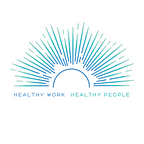Marnie Dobson Zimmerman, Ph.D. — Associate Producer & Director of Research
WOE is a transmedia project on declining American worker health, poor work-life culture, and the laws, policies, and workplace practices that perpetuate these conditions.
___________________________________________________________________
Activism and science are not mutually exclusive. As a social scientist, I believe we can answer questions about inequality and produce knowledge in a rigorous and systematic way, with fair-minded, reflective peer review to uncover facts about the health of our society. We have a responsibility as scientists to also translate that scientific knowledge and make it accessible to the public and to policy makers interested in promoting a more just society. I have listened to many stories from many working people voicing concerns about their workplaces and, through my research and writing, I have helped to represent their concerns to their employers — with sometimes limited effect. We must do more.
As a medical sociologist, academic researcher and activist, I have spent the last twelve years or more trying to understand how our society affects our opportunities, health and longevity. America spends more per person on medical care than any other advanced industrialized nation, yet we have some of the lowest rankings in life expectancy and mortality.
For the first time since 1993, the life expectancy of Americans — particularly middle-class working Americans — has declined; and there is an uptick in the death rate from cardiovascular disease (CVD), suicide and overdoses in particular. (CDC NCHS Data Brief, Dec. 8, 2016)
When you have less money and education, not only do you have less opportunities than ever before in our country, but you get sicker and die sooner than people who have more. Health is not equal in our country; and this has social causes. The income gap between rich and poor is enormous. Our private, free-market health insurance system is unaffordable. And the stress of poor living and working conditions takes its toll on those of us who have the least.
While working on my Ph.D. in sociology at the University of California, Irvine, I also became a labor activist, proud union member and organizer for student employees in UAW Local 2865. I recognized the importance of the collective power of workers as part of a labor movement that, although under attack since the 1970s, offers the only chance of basic economic protections in a system that is not set up to benefit working people.
In 2006, I became the Associate Director of the Center for Social Epidemiology (CSE), working alongside Peter Schnall, and found a new angle to understand inequality in health. Poor working conditions across many occupations can cause mental and physical illness. Our mission at CSE is to promote public awareness of the impact of work stressors (the sources of stress at work) on health. These stressors include long work hours, shift work, lack of control over one’s schedule and tasks, lack of appropriate pay or promotions, job insecurity, bullying and workplace injustice, and contribute to chronic illnesses: from hypertension and CVD to depression and anxiety.
After completing my doctorate, I continued my career as a work stress researcher and am currently an Assistant Adjunct Professor in the Center for Occupational and Environmental Health at UC Irvine. As a qualitative researcher, I have interviewed and worked closely with working people and their labor organizations from a variety of occupations, including firefighters, communication workers, transit operators, and hotel housekeepers.
Working on Empty is an important project that aims to amplify the voices of working people from all walks of life and translate the knowledge gained from hundreds of researchers over almost 30 years into useful resources, tools and data that can guide people and institutions. You may already know your life and health are impacted by work stressors. But, especially if you were taught “just be glad you have a job,” you may be surprised to find out that excessive work stress can actually make you sick. With this project, it’s my hope that we clearly show how the toxic work culture that guides many businesses in the US, does not have to remain the status quo, and that the causes of stress in the workplace are not your fault. Work should not threaten your health and well-being. Work should be a source of life.
While the new White House regime promises to “bring back jobs” to make “America Great Again,” we have to wonder what the quality of those jobs will be — and shouldn’t the quality matter? This administration hypocritically appoints Wall Street executives, CEOs and billionaires to cabinet positions, dumping environmental and labor regulations that are supposed to protect the health of working people, and pursuing regulations, such as “Right-to-Work,” that have undermined the power of working people to maintain a fair standard of living. I believe that we are seeing a new era of civic engagement, and it is the right time for all working Americans to stand up together, say enough is enough, and demand economic justice and healthy work.
To support the WOE movement:
- Share this Medium post with a friend or a colleague.
- Connect with us on Facebook & Twitter.
- Visit our website: workingonempty.org. (coming soon)
- E-mail us directly: WorkingonEmptyDoc@gmail.com
With your help, we will have created more than hope — we’ll have cemented lasting, positive change in the name of healthy working conditions.
___________________________________________________________________
Marnie Dobson Zimmerman, PhD, WOE Associate Producer of Research and Associate Director of the Center for Social Epidemiology, is a medical sociologist and a work stress researcher for more than 15 years, studying the effects of work organization on worker stress and health. She has worked to give voice to many worker populations, interviewing and conducting focus groups with firefighters, bus drivers, hotel room cleaners, communication workers, publishing academic research articles and co-editing the book Unhealthy Work: Causes, Consequences, Cures. (Baywood, 2009) (LinkedIn, Twitter)
